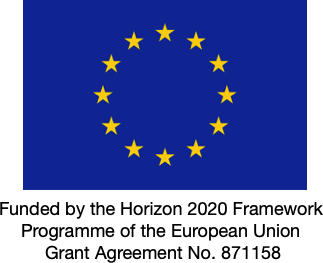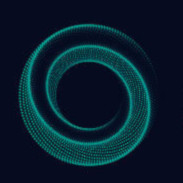Our goal is to provide trans-national access (TA) to computational astrophysics as part of the AHEAD 2020 project. This new TNA will provide new opportunities for European researchers to access free of charge complex computational astrophysical simulations, models and tools to simulate, compare, and analyse X-ray and gamma-ray data, and advanced tools for Gravitational Wave analysis. The offered access will stimulate and enhance the knowledge of high-energy astrophysics across Europe. It will be of great interest to relatively inexperienced users in small institutes, and to observers that aim to gain new knowledge in computational astrophysics to model their data.
Overview of services offered
9 different host institutes offer services of computational astrophysics in the different fields
- Reflex code: multi-purpose tool to simulate X-ray interactions with matter (University of Geneva)
- Cosmological hydrodynamical simulations (INAF Trieste, Leiden University, Ludwig-Maximilians Universität München, )
- HD/MHD models for accretion/ejection process in young stars and physics of SNRs and cosmic rays acceleration at shock fronts of SNRs (INAF Palermo)
- Broad-band models and high-resolution relativistic jet simulations for GRB jets (University of Ferrara, University of Bath)
- Neutron star and accretion disk atmospheres models (N. Copernicus Astronomical Centre Polish Academy of Science)
- Advanced approaches toward gravitational-wave analysis and multi-messenger astronomy (European Gravitational Observatory)
The list of host institutes, together with their area of expertise and offered access, are provided in the "Host institutes" tab.
Selection process
Users will submit an application via a web form on this TNA web site which will permit a preference for a particular host institute (allowing for spoken language and detailed scientific requirements). Visiting users will be selected via a competitive process based on the quality of the scientific application, on the needs of the user, their access to computational astrophysics, and the adequacy between the proposed project and the requested TNA sites. The unit of time for a visit is normally 5 working days, but can last up to 10 days. Iterations between the user and the TNA site contact point will take place by e-mail before the visit to ascertain their experience in computational astrophysics and to refine the requirements and needs of the user for his/her visit, and thus to tailor the tools made available by the TNA site. Additional support will be available by e-mail after the visit to ensure the best use of the computational astrophysics tool offered by this TNA. The selection process will ensure that the best scientific use of the TNA is made and that the selected TNA site matches the needs of the user.
Support offered under this proposal
During the visit the user will be given space within an office in the host institute, access to the internet and assigned a contact scientist who will be responsible for supporting the user and who will be available throughout the visit. The support will be provided by at least one person, for several hours a day, by means of tutorials, hands- on sessions, and models tailored to the users’ needs. After the visit, a point of contact at the TNA site will still be available for follow-up discussions.
Typical software packages needed for the analysis or simulation of X-ray data will also be provided, as well as specialized software developed at the host institution. The user will be encouraged while present to join in the usual research activities of the host institution (seminars, discussions of recent techniques and results). The latter activities will be particularly important for users from small research centres to ensure they maintain contact with the subject once they return home. The user will be given practical help to arrange their visit (to arrange travel, accommodation and ensure prompt reimbursement of costs) as for current visitors to the host institution. Users will need to fill a report after their visit and are expected to provide feedback.
The user will be encouraged while present to join in the usual research activities of the host institution (seminars, discussions of recent techniques and results, updates on current/future space missions and external training opportunities). The latter activities will be particularly important for users from small research centres to ensure they maintain contact with the subject once they return home.
The 7th and last call was January 15, 2024 until February 16, 2024, for visits no later than October 31, 2024. Applications are being reviewed.
Important note on remote access. This AO will include the possibility of remote access (e.g. on-line training). In such case the service is offered with no need to travel to the host institute. The user application should clearly state if this is acceptable and if any help with software installation is required. If selected, the user should discuss details with the host institute.
All publications resulting from AHEAD2020 activity must include the following acknowledgement:
"This paper is supported by European Union's 2020 research and innovation programme under grant agreement No.871158, project AHEAD2020"


